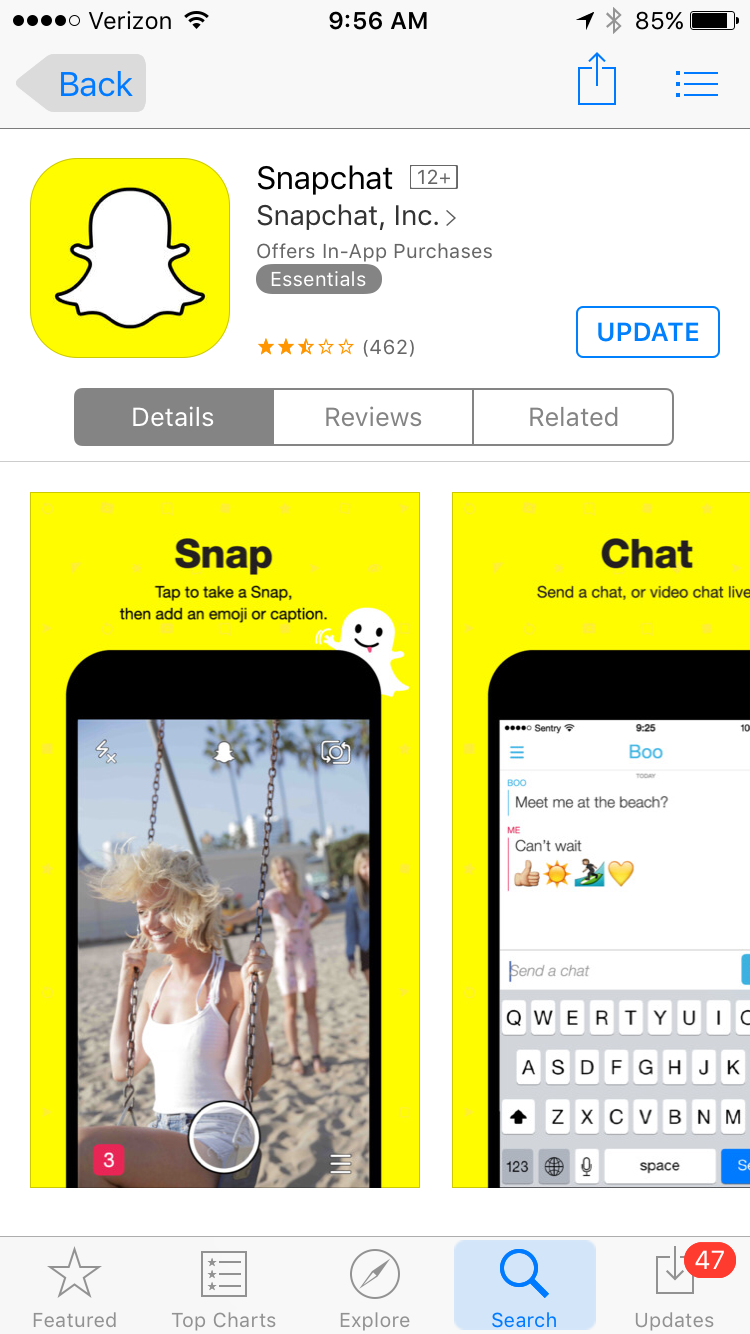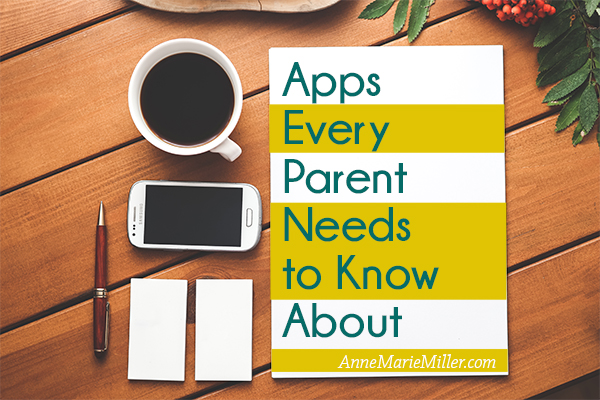5 Things Every Parent Needs to Know About Their Kids & Sex Ships Next Week!
Get it in your mailbox (or on your e-reading device) next Tuesday, May 17!
Pre-order my book Five Things Every Parent Needs to Know About Their Kids and Sex
Don’t forget to grab your copy before the release date (May 17!), and get some great freebies that will help you talk to your kids about sex.
Today’s App Every Parent Needs to Know About (full series here) is Whisper. It’s made the rounds in media and has received some bad press–maybe rightfully so, as it’s another app that allows users to anonymously post pictures, secrets, confessions, questions, and chat privately with others and share their location or only look at Whispers that are nearby.
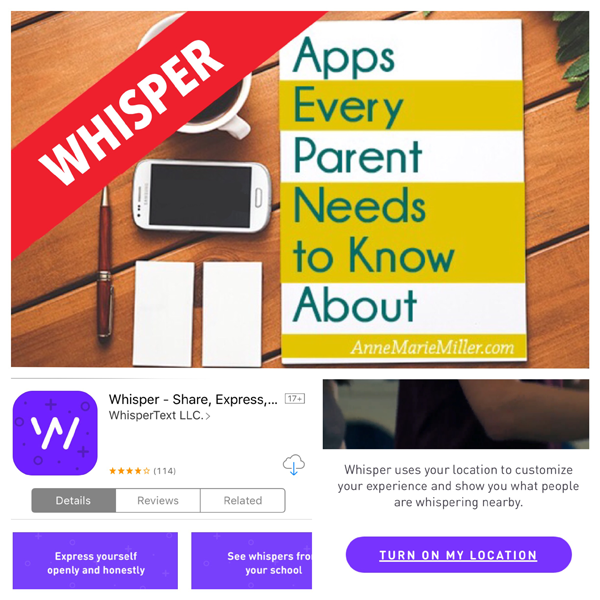
Whisper’s Purpose (according to their app store description):
“Ever wondered what the people around you are really thinking? Whisper is an online community where millions of people around the world share real thoughts, trade advice, and get the inside scoop. See what people are thinking at the places you visit, like your school. Chat directly with other Whisper users – it’s a great way to meet new people. Join the 30 million+ people who use Whisper every month; it will change the way you see the world.”
Terms of Service/App Rating: Whisper is rated 17+ in the app store for:
- Frequent/Intense Mature/Suggestive Themes
- Infrequent/Mild Profanity or Crude Humor
- Infrequent/Mild Alcohol, Tobacco, or Drug Use or References
In the Terms of Service, Whisper is very clear that the intended audience is 17+. Even still, their messaging is confusing as they say in the fine print, “If you are between 13 and 18 years of age, you may use the services provided with the consent and under the supervision of a parent or guardian, who are obliged to abide by these terms,” and the age you can claim within the app begins at the age of 15.
So, I’m guessing they really don’t care how old you are. Parents, it’s your responsibility to limit which apps your kids download (or have access to download). On that note, Whisper offers parents advice on how to enable restrictions on their kid’s phones and tablets.
They lay out their community guidelines simply:
“Do not be Mean, Do not be Gross, and Do Not Use Whisper to Break the Law: Do not defame, impersonate or abuse another person. Do not share personal information of another person, including address or telephone number. Hate speech directed at any group of people will be removed from our services. This includes hate speech on gender, sexuality, race, religion and ethnicity. You can use your own photos on Whisper, but do not allow images that are filthy, violent or pornographic. Do not use Whisper to promote illegal behavior like selling controlled substances or solicitations. If you solicit minors for any reason or post sexually explicit images of minors, we will suspend your account and report it to the National Center for Missing Children. Do not make threats of violence. We may share your IP, location and other information with the police if we think you are a threat to the safety of others. We are required by law to disclose your information if we receive a subpoena, court order or warrant.”
Privacy & Parental Controls: Whisper keeps the standard amount of information that other apps keep: cookies and pixels (that track your use), geolocation (if location services are on) and does provide that information to advertisers and some third parties.
Some notable comments, mostly in regard to Whisper’s location services–as you can see from my screenshots, it tells the user approximately how far another user is away in distance. If kids use the service and reveal any personal information (name, a photo of something outside that’s identifiable), they can be easily found.
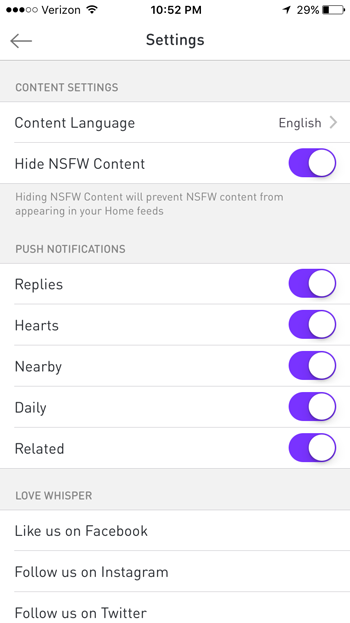 The Good:
The Good:
- Compared to other apps, Whisper had the least amount of sexually explicit content. It’s not void of it completely, but there was a considerable difference.
- You can turn location services off, but it limits how the app functions.
- If someone is mature enough and knows how to process the mature topics or photos that do populate feeds, it could be a great place to encourage people who are going through tough times.
- Reporting posts, users, and blocking chats is quick and easy.
- Users can enable a NSFW (Not Safe For Work) filter which filters out some mature content.
- Within the app settings, users can visit “Your Voice” which shares videos from users who struggle with various issues, sorted by issue (mental health, sexuality, suicide, etc.). Users can also share their own stories, which are moderated before being shared.
The Bad:
- Content is user-generated, which means even if something is reported, users can view inappropriate content simply by using the app.
- After you type in your Whisper, based on what words you use, the app suggests “related” photos to accompany it. Some of these photos are hard PG13 or rated R.
- Location features allow for users to be easily identified if not cautious.

- The “My School” section is has only basic protection: anyone on campus (even across the street) from a school can log in to that school’s feed and communicate with minors.
- Although the TOS says feeds are actively monitored for suicidal/self-harming/eating disorders/threatening posts, it’s easy to find and suggested images from the app support inappropriate messages.
- One report I read online said users who post suicidal/self-harming/eating disordered posts are directed to help. I posted about “wishing to be dead” and “starving myself” and was not redirected to help. Instead, I was shown similar confessions from others. (see side photo)
- Users can also add a personal PIN so that if the app is accessed, the feeds remain but personal chats and Whispers are not shown unless the PIN is entered, which can prevent parents from checking the app.
- In my experience, as a 15-17 year old female persona in the app, in less than 24 hours, I was by a male adult in my city where I live and what school I go to.
What you need to know:
One of the most concerning features of Whisper is the location-sharing element, and within that, the ease in which one can sign into a local school’s “private” feed. Unlike After School, where your ID has to be verified through Facebook and/or a state-issued ID, anyone can get on or really close to a school campus and have access to that feed without having to do anything else.
Like I did in After School, I chose a nearby school. To verify myself, I drove to the parking lot of the school and logged in. I pretended to be a 15-17 year old high school student and easily started chatting with other high school students, both receiving chats and sending them (I sent mine as anonymous encouragements, the ones I received were a mix of positive and sexual).
Because there can be such a high emotional element to sharing secrets or confessions, predators can engage in conversations under the guise of being a peer and in worst-case situations, can schedule a meet up to “help” their new friend out.
Conversation Starter:
I have to admit: Whisper was not as “bad” as I’ve heard. Maybe people in Iowa don’t post a lot of explicit content (or maybe users of the Whisper app compared to the After School app are toned down.) While it wasn’t completely teen-friendly, more mature teens could use this app with extreme caution and could be a source of encouragement for others.
Chances are, if you have a junior high or high school student, they know about the Whisper app. What are your child’s app settings? Are they restricted from downloading certain content (like 12+ or 17+)?
- Have you heard of the app Whisper? Tell me about it.
- Have you ever shared something on Whisper or read someone else’s secret?
- Has someone you don’t know tried to start a private chat with you? What did/would you do?
- What would you do if you saw on Whisper that someone wanted to hurt themselves or others?
- What are some ways you might accidentally share your location? (i.e., geographically identifying pictures, using photos in public places that other can see)
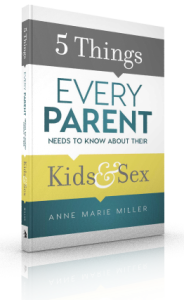 Educating, Encouraging and Equipping Parents
Educating, Encouraging and Equipping Parents
Nervous about talking to your kids about sex? Anxiety over having “the talk” often means we avoid it as long as we can. While we’re waiting, our kids are getting their questions answered and their perceptions of sex and sexuality formed elsewhere–through online searches and a daily diet of mainstream and social media that may shock you. In this immensely practical and well-researched book, Anne Marie Miller:
- Equips parents to take control of the narrative their children are receiving about sex.

- Shows how to have meaningful and age-appropriate conversations about sex, pornography, and sexual abuse.
- Helps parents keep the lines of communication open so kids will trust them with fears, struggles and questions.

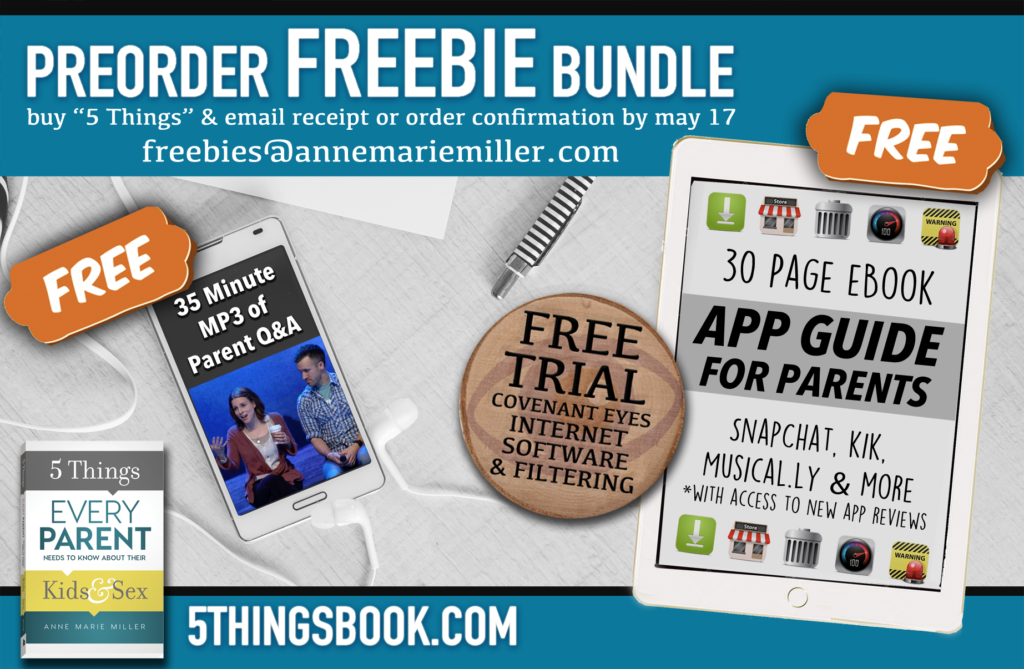
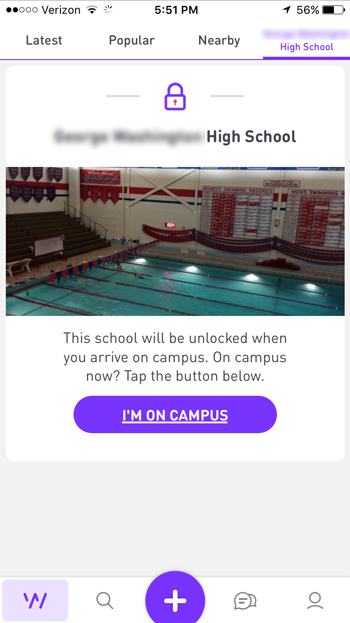
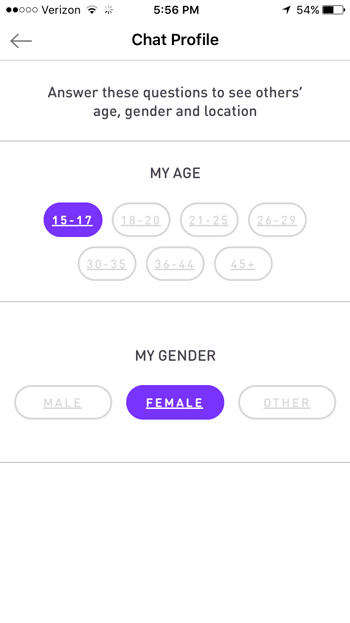
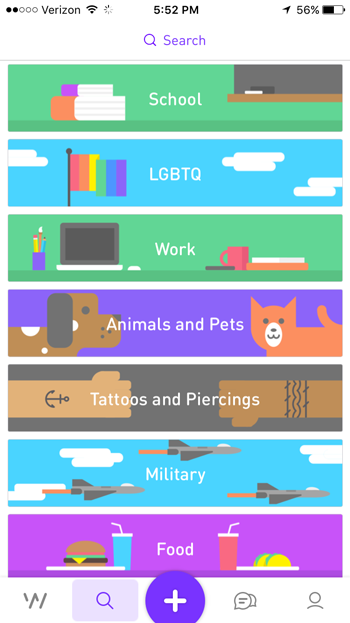
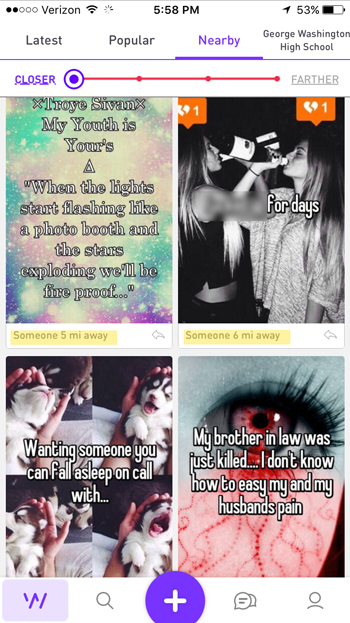


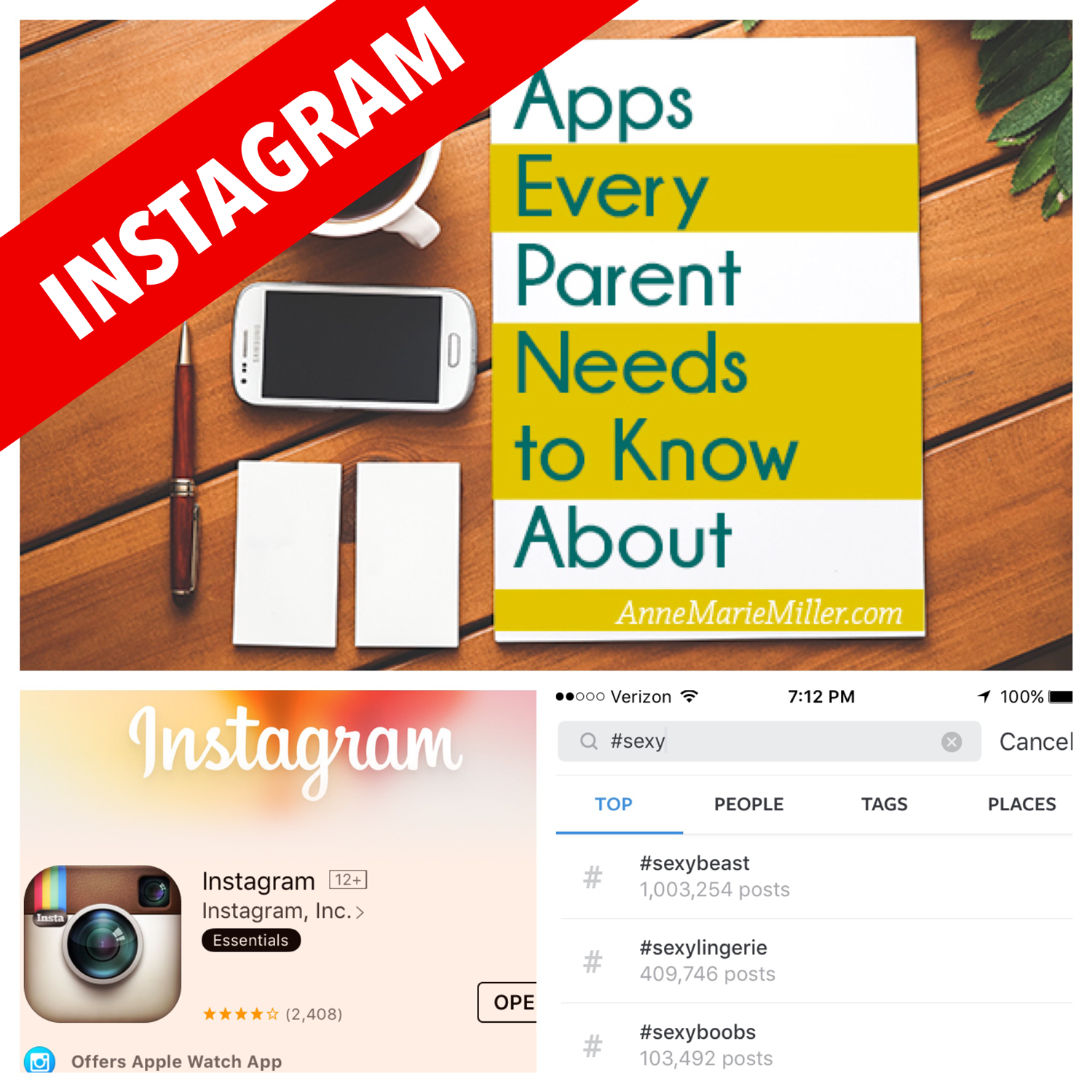






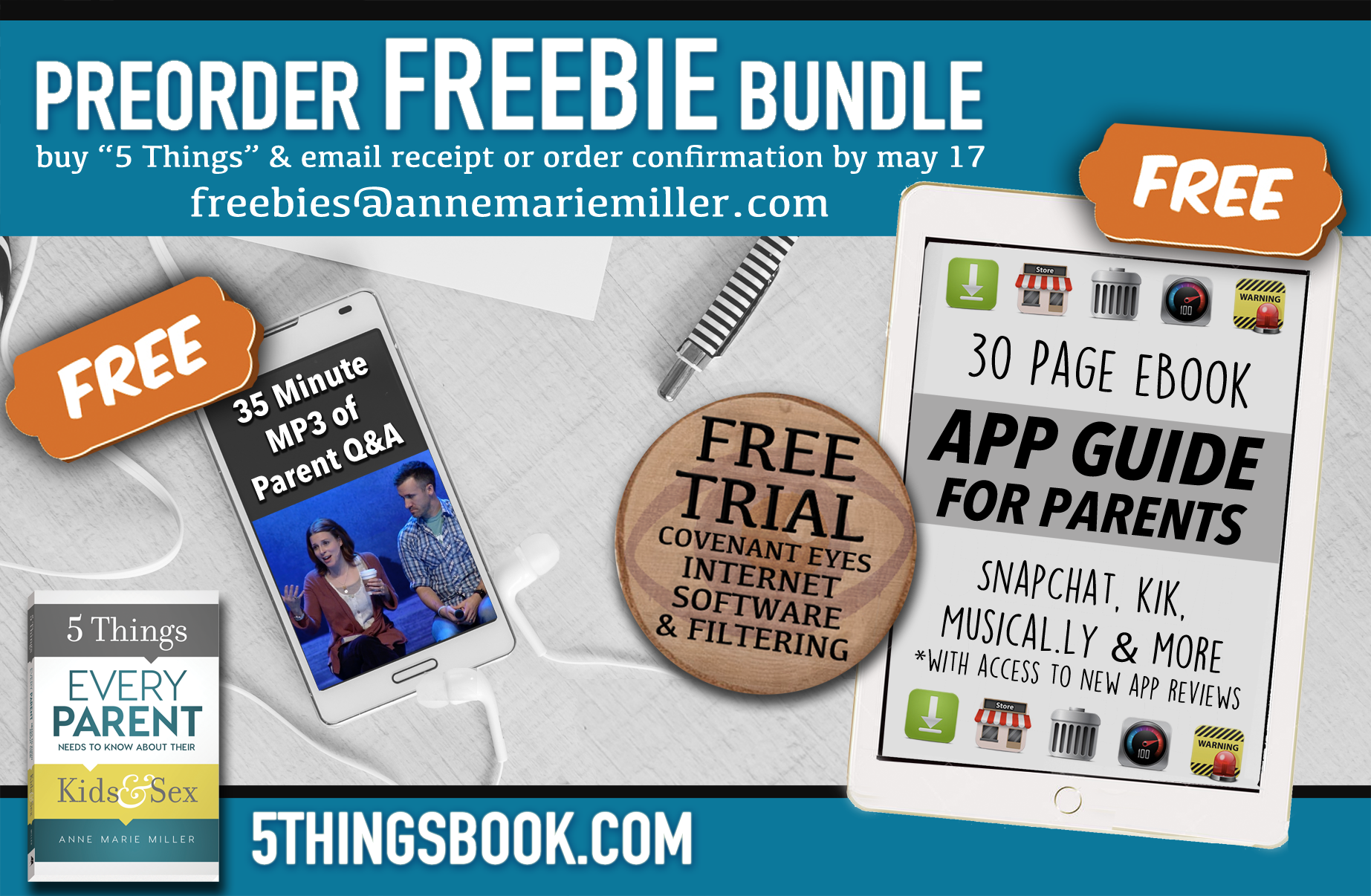
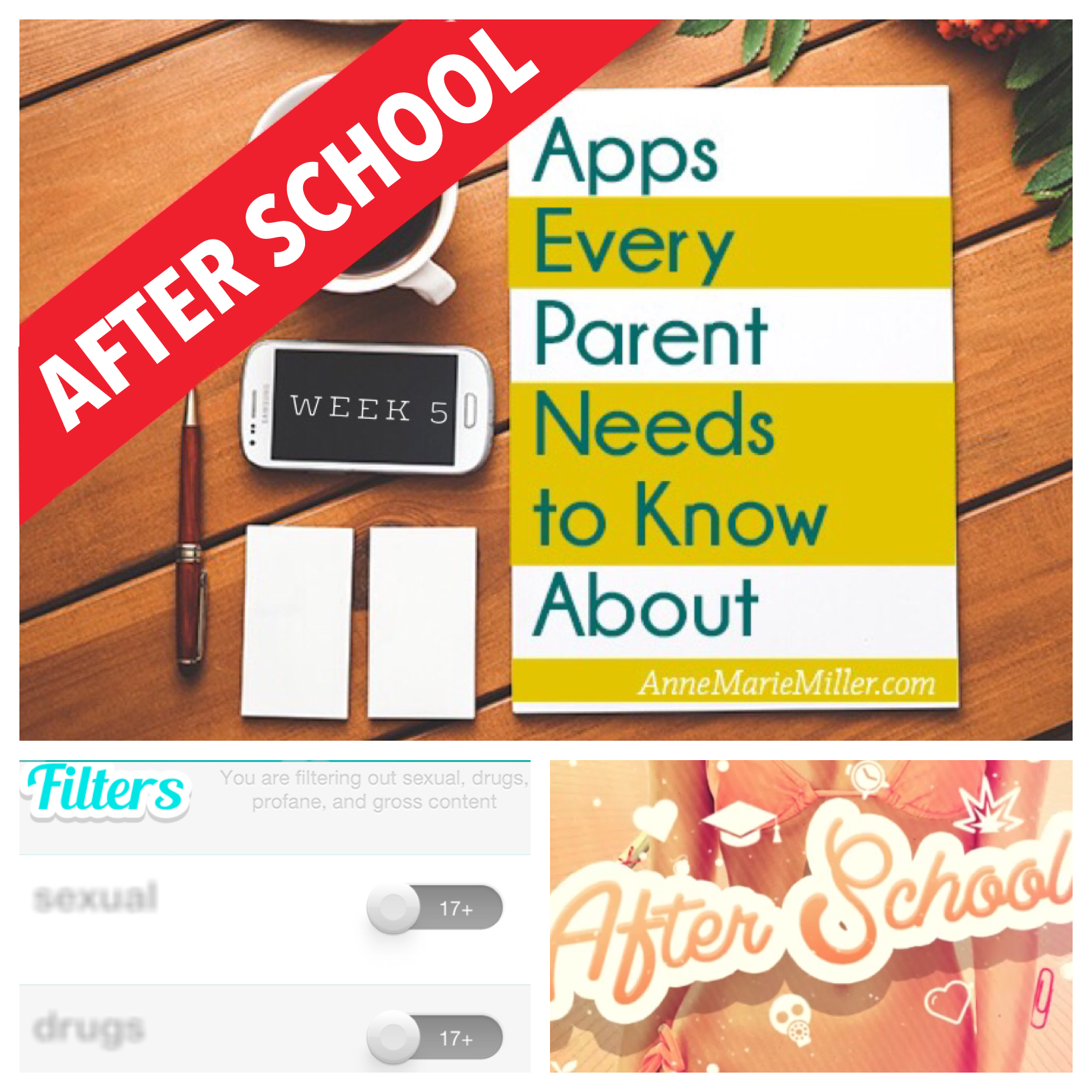
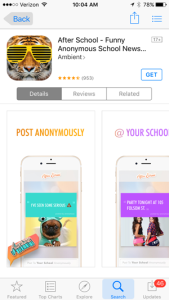

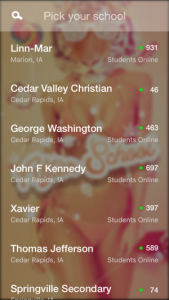

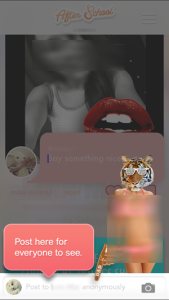

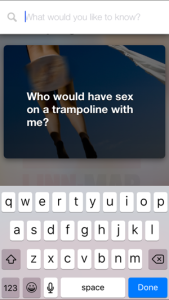
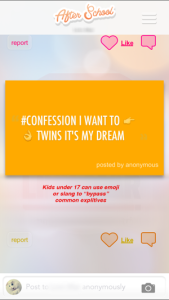
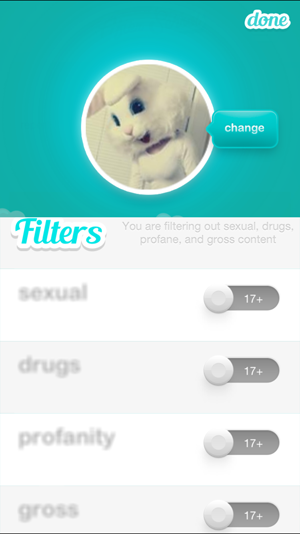
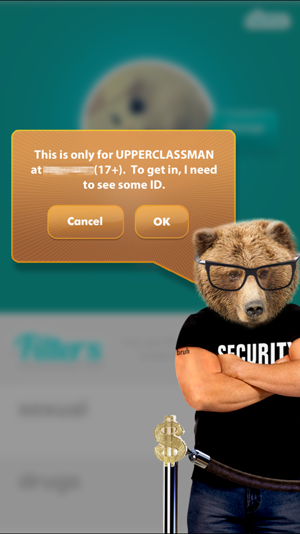


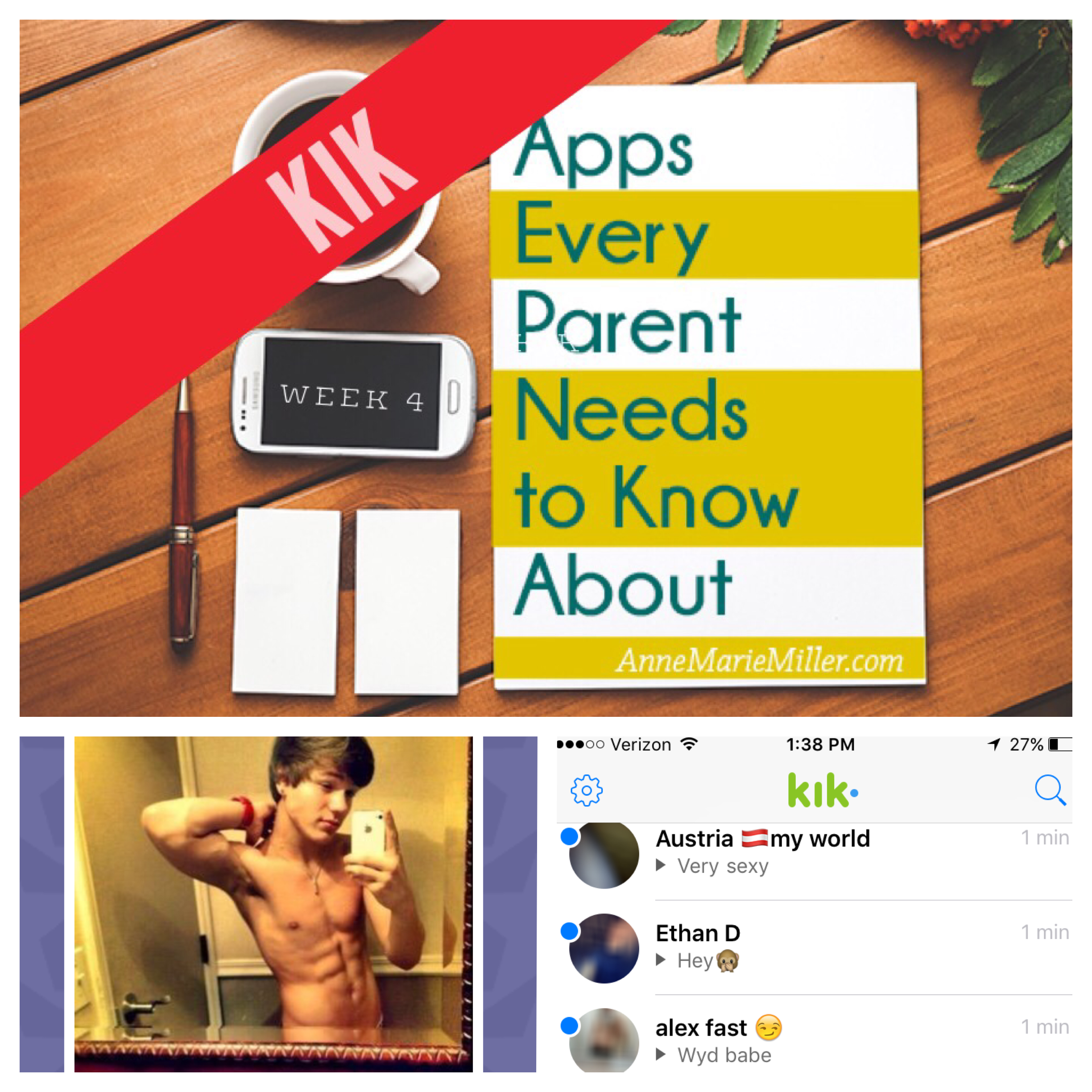
 kik, like our previous reviews, is rated 12+ for the same reasons as the others (noticing a theme here?) for a variety of “Infrequent/Mild,” sex and suggestive themes.
kik, like our previous reviews, is rated 12+ for the same reasons as the others (noticing a theme here?) for a variety of “Infrequent/Mild,” sex and suggestive themes.





